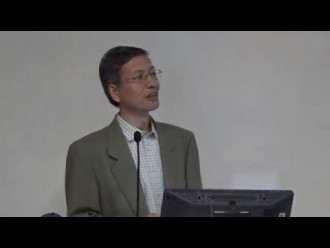
简历
研究范围
- 佛教哲学
- 印度哲学
- 宗教哲学
- 现象学
- 心灵哲学
出版刊物
Books
- Brahman and Dao: Comparative Studies of Indian and Chinese Philosophy and Religion. Co-edited with Ithamar Theodor. Lexington Books, 2014, 2015 (paperback).
- The Buddhist Theory of Self-Cognition. London and New York: Routledge, 2005, 2009 (paperback).
- 《异部宗轮论(释译)》Taiwan: Foguang Press, 1996.
Articles and Book Chapters
- “Daoism and Buddhism”. In Xiaogan Liu (ed.) Dao Companion to Daoist Philosophy (Springer 2015), 513-526.
- “Do Meditative Objects Exist?” In Dhammajoti (ed.) Buddhist Meditative Praxis: traditional teachings & modern applications (Centre of Buddhist Studies, the University of Hong Kong 2015), 211-220.
- “One, Water, and Cosmogony: Reflections on the Ṛgveda X.129 and the Taiyi sheng shui”. In Ithamar Theodor and Zhihua Yao (eds.) Brahman and Dao: Comparative Studies of Indian and Chinese Philosophy and Religion (Lexington Books 2014), 3-18.
- “The Cognition of Nonexistent Objects: Five Yogācāra Arguments”. In Jeeloo Liu and Douglas Berger (eds.) Nothingness in Asian Philosophy (Routledge 2014), 133-147.
- “Yogācāra Critiques of the Two Truths”. In Chen-kuo Lin and Michael Radich (eds.) A Distant Mirror: Articulating Indic Ideas in Sixth and Seventh Century Chinese Buddhism (Hamburg University Press 2014), 313-335.
- 〈无:从《存有与时间》到《哲学文献》〉.《现象学与人文科学》[Phenomenology and the Human Sciences] 5 (2014): 263-277.
- “‘I Have Lost Me’: Zhuangzi’s Butterfly Dream”. Journal of Chinese Philosophy3-4 (2013): 511-526.
- 〈吕澂柳诒徴《汤用彤〈汉魏两晋南北朝佛教史〉审查书》(整理稿)〉. 《汉语佛学评论》 3 (2013): 5-10.
- “Sources for the Yogācāra Critiques of the Two Truths”. In Dasho Karma Ura and Dendup Chophel (eds) Buddhism Without Borders(Bhutan, Thimphu: Centre for Bhutan Studies 2012), 243-256.
- 〈从柏林联邦档案馆藏太虚的一封信谈起〉. 马建钊、印顺、李大华编《宗教的现代社会角色》(北京:人民出版社2012), 119–132页.
- “Noncognition and the Third Pramāṇa”. In Helmut Krasser, Horst Lasic, Eli Franco, and Birgit Kellner (eds.) Religion and Logic in Buddhist Philosophical Analysis (Wien: Verlag der Österreichischen Akademie der Wissenschaften 2011), 477–490.
- “‘Sautrāntika-Madhyamaka’ as Seen in the grub mtha’ Texts from Dunhuang”. Journal of Buddhist Studies 8 (2011): 81–90.
- “‘Suddenly Deluded Thoughts Arise’: Karmic Appearance in Huayan Buddhism”. Journal of Chinese Philosophy2 (2010): 198–214.
- “Typology of Nothing: Heidegger, Daoism and Buddhism”. Comparative Philosophy1 (2010): 78–89.
- “On Memory and Self”. In Maurits G. T. Kwee (ed.) New Horizons in Buddhist Psychology: Relational Buddhism for Collaborative Practitioners (Chagrin Falls, OH: Taos Institute Publications 2010), 233–245.
- “Empty Subject Terms in Buddhist Logic: Dignāga and His Chinese Commentators”. Journal of Indian Philosophy 37 (2009): 383–398.
- “A Diatessaronic Reading in the Chinese Nestorian Texts”. In D. W. Winkler and Li Tang (eds.) Hidden Treasures and Intercultural Encounters: Studies on East Syriac Christianity in China and Central Asia (Wien and Berlin: LIT Verlag 2009), 153–165.
- “Tibetan Learning in the Contemporary Chinese Yogācāra School”. In M. Kapstein (ed.) Buddhism between Tibet and China (Boston, MA: Wisdom Publications 2009), 181–202.
- 〈佛教逻辑中的「空词项」问题〉《修远之路 : 香港中文大学哲学系六十周年系庆论文集 同寅卷》刘国英、张灿辉编(Hong Kong: Chinese University of Hong Kong Press 2009), 359-375.
- “The Silence of the Buddha”. In K. L. Dhammajoti (ed.) Buddhist and Pali Studies (Hong Kong: Centre of Buddhist Studies, The University of Hong Kong 2009), 411–416.
- “Some Mahāsāṃghika Arguments for the Cognition of Nonexistent Objects”. Journal of Indian Council of Philosophical Research3 (2008): 79–96.
- “On Memory and Personal Identity”. Journal of Buddhist Studies 6 (2008): 219–234.
- 〈「有性」与「是性」: 从汉译梵文典籍的经验看Sein一词的翻译〉.《现象学与当代哲学》[Journal of Phenomenology and Contemporary Philosophy] 2 (2008): 113-130.
- 〈敦煌所出藏文宗义书所见之“经中观”〉.《华学》[Sinology] 9-10 (2008): 1484-1489.
- “Four-Dimensional Time in Dzogchen and Heidegger”. Philosophy East and West4 (2007): 512–532.
- 〈非认知与第三量〉.《国立政治大学哲学学报》[NCCU Philosophical Journal] 17 (2007): 89-114.
- “Dharmakīrti and Husserl on Negative Judgments”. In Cheung Chan-fai and Yu Chung-chi (eds.) Phenomenology 2005, I: Selected Essays from Asia (Bucharest: Zeta Books 2007), 731–746.
- 〈庄子〈蝴蝶梦〉的深层分析〉.《儒释道之哲学对话》[Philosophical Dialogue Between Confucianism, Buddhism and Daoism] 刘笑敢、川田洋一编 (Hong Kong: Commercial Press 2007), 289-302.
- 〈庄子〈蝴蝶の梦〉の深层分析〉(菅野博史译).《东洋学术研究》[Tōyō gakujutsu kenkyū] 46-2 (2007): 126-144.
- 〈论陈那的自证说〉.《现象学与人文科学》[Phenomenology and the Human Sciences] 3 (2006): 51-83.
- “A Note on Dignāga and Asvabhāva.” Journal of Buddhist Studies 4 (2006): 251-258.
- 〈海德格尔与大圆满中的四维时间〉.《现代哲学》[Modern Philosophy] 1 (2006): 78-89.
- 〈陈那与四种现量〉(余振邦译).《复旦哲学评论》[Fudan Philosophical Review] 3 (2006): 56-77.
- 〈再论海德格尔的Ereignis:以《哲学文献》为中心〉.《德意志思想评论》[German Thought Review] 2 (2005): 58-72.
- “Reflexive Awareness: A Theravāda-Andhaka Debate.” Journal of Buddhist Studies 3 (2005): 152-168.
- “Dignāga and Four Types of Perception.” Journal of Indian Philosophy 32 (2004): 57-79.
- 〈《太一生水》与太乙九宫占〉.《古墓新知》[Old Tomb, New Knowledge], edited by Pang Pu (Taipei: Taiwan Guji Publications, 2002), 47-67.
- “In the Power of the Spirit.” Tripod XVI, No. 91 (1996): 28-38.
- 〈补特伽罗和阿特曼的译名问题〉.《谛观》[Satyābhisamaya Quarterly] 82 (1995): 47-64.
- 〈爱德蒙徳胡塞尔〉.《现代世界十大思想家》[Ten Great Thinkers in Modern World], edited by Yi Jiexiong (Nanjing: Jiangsu Renming Press, 1995), 405-532.
- 〈庸与Ereignis〉.《现象学与海德格》[Phenomenology and Heidegger], edited by Xiong Wei (Taipei: Yuanliu Publications, 1994), 319-347.
- 〈如如之真与生生之易:论智旭的三教合一思想〉.《东南文化》[Southeastern Culture] 2 (1994): 196-201. Reprinted in 《人大报刊复印资料》[Renda Reprints of Periodical Articles] 10 (1994): 106-111.
- 〈佛教哲学中的不可说问题〉.《佛学研究》[Buddhist Studies] 1 (1993): 102-110.
- 〈尼采对轮廻的领悟〉.《法音》[Dharmaghoṣa] 12 (1991): 40-45.
- 〈康德先验演绎中的我思与时间〉.《北京大学研究生学报》[Journal of Graduate Studies of Peking University] 3-4 (1991): 37-44. Reprinted in 《人大报刊复印资料》[Renda Reprints of Periodical Articles] 3 (1992): 25-32.



